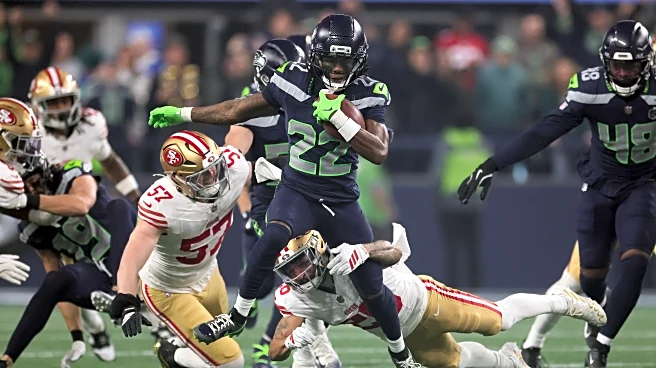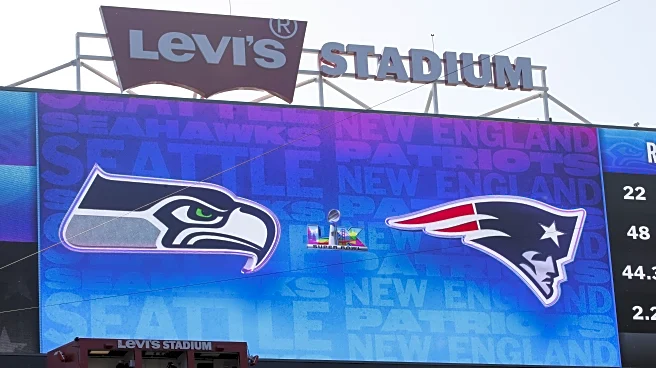What's Happening?
The deployment of National Guard troops in Washington, D.C., initiated by President Trump, has sparked mixed reactions among local residents. The troops, part of a federal law enforcement intervention,
have been involved in community improvement projects such as cleaning parks and refurbishing recreation centers. While some residents appreciate the assistance, others are wary of the deployment, viewing it as presidential overreach. The presence of armed troops has led to legal challenges, with D.C.'s attorney general filing a lawsuit against the deployment. The troops have been active since August, following an emergency order by President Trump aimed at reducing crime in the city.
Why It's Important?
The deployment of National Guard troops in Washington, D.C. highlights the tension between federal authority and local autonomy. While the initiative has reportedly contributed to a decrease in crime rates, it raises concerns about the use of military forces in civilian law enforcement. The situation underscores the delicate balance local officials must maintain between accepting federal assistance and opposing perceived overreach. The legal challenges and public sentiment reflect broader national debates on the role of federal intervention in local governance, particularly in cities with limited self-governance like Washington, D.C.
What's Next?
The lawsuit filed by D.C.'s attorney general is set to be heard soon, potentially influencing the future of the National Guard's presence in the city. The outcome could set a precedent for other cities facing similar federal interventions. Meanwhile, the National Guard's community-focused efforts may continue, depending on the legal and political developments. Local officials and residents will likely continue to navigate the complexities of accepting federal assistance while advocating for greater autonomy.









